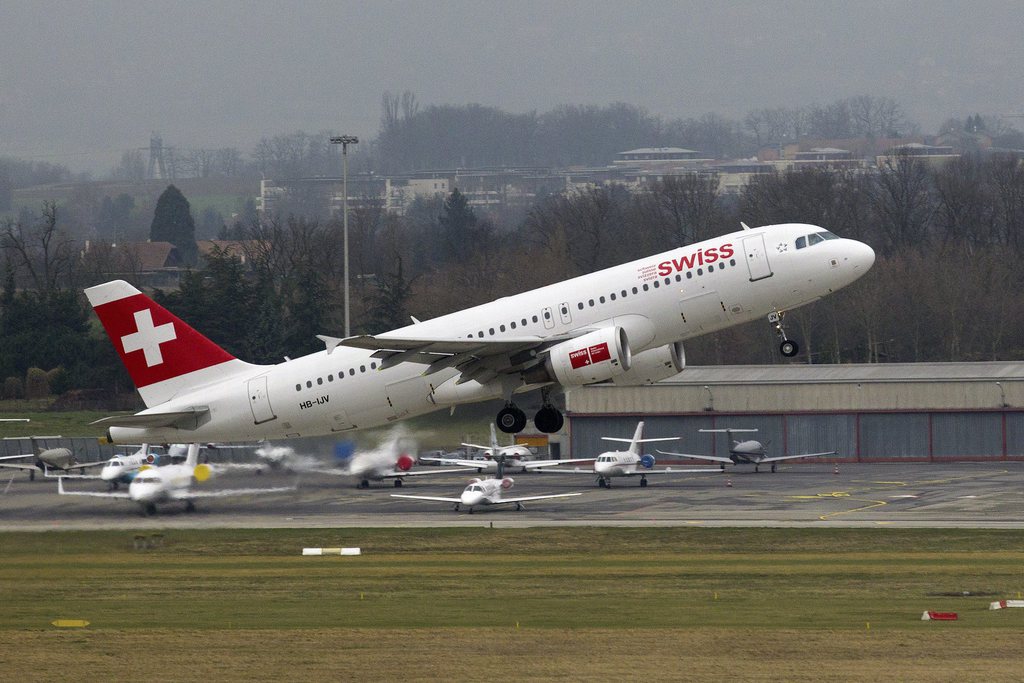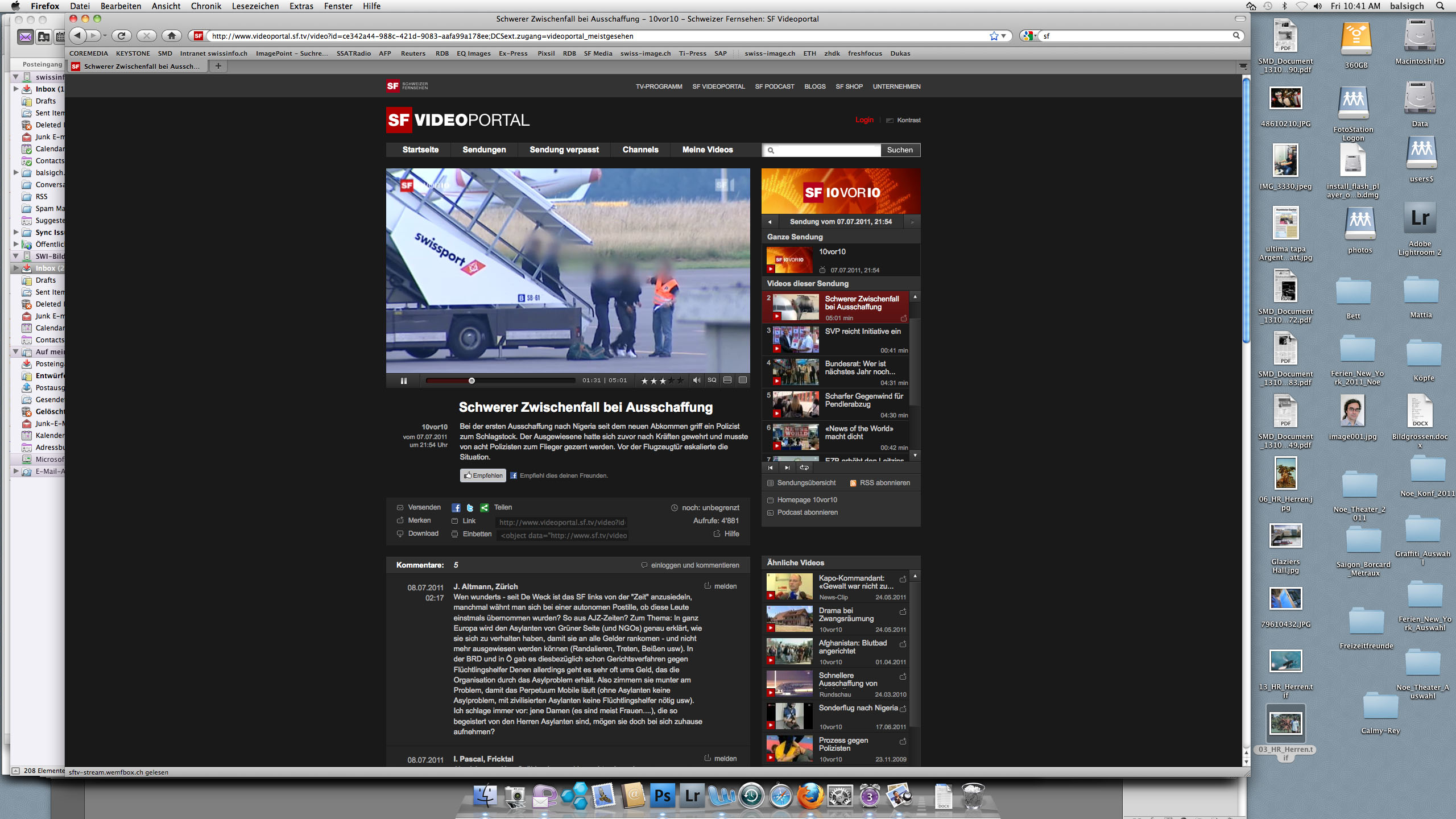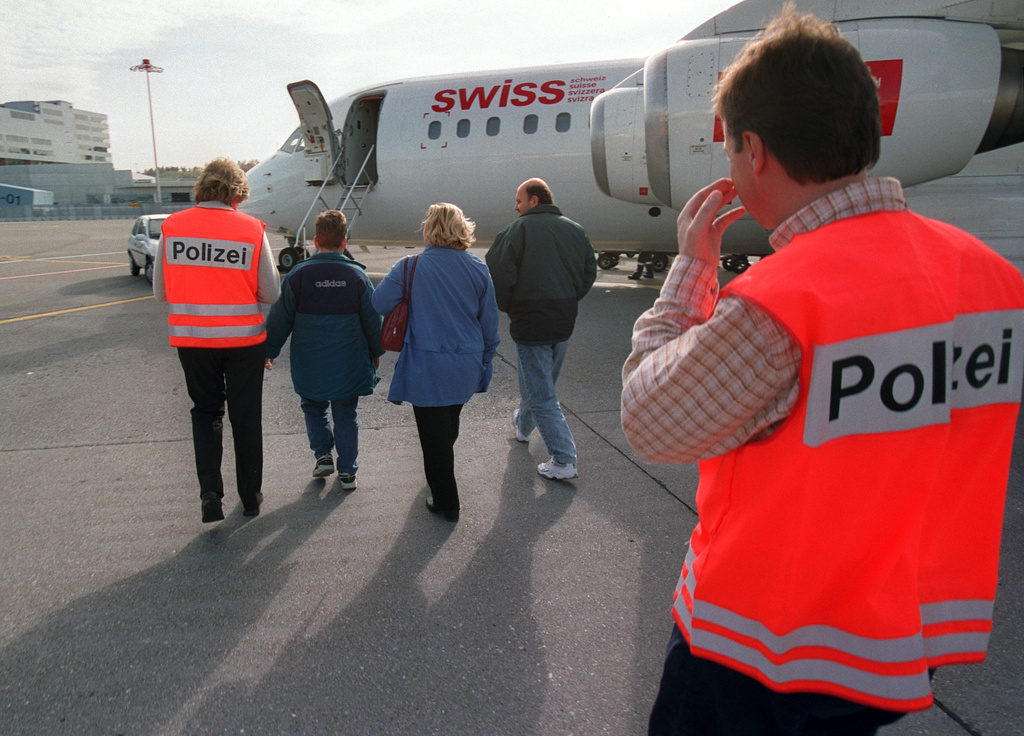Deportation flights could be improved, says report

The National Commission for the Prevention of Torture (NCPT) has given “lukewarm” marks to the 31 special deportation flights, carrying 159 foreigners, which it accompanied between July 2012 and April 2013.
In four cases, passengers were forced to take sedatives against their will, the commission said in its repatriation report on Monday.
It said it was particularly concerned about the use of ketamine, saying that from a medical point of view, the anaesthetic “didn’t seem appropriate for dealing with states of mental agitation which can arise on repatriation flights”.
The NCPT also criticised the medical guides, given a mandate by the Federal Migration Office, with whom collaboration was “difficult and unsatisfactory”, according to the report.
The commission said it had been denied access to medical records. It called on the cantonal authorities to guarantee the transferal of this information.
Repatriation flights hit the headlines in March 2010, when a Nigerian deportee died at Zurich airport after being forcibly restrained. Although an autopsy found he suffered from an undiagnosed heart condition, all deportation flights were temporarily halted.
Flights were then suspended for a year, but on the first day of their resumption, in July 2011, a Swiss news programme showed a video of two Nigerians resisting boarding a Lagos-bound plane, with policemen punching and clubbing one of the men as they attempted to carry him onto the aircraft.
Not all bad
On a more positive note, the NCPT welcomed wider methods of shackling people: whereas handcuffs were used systematically, all-over shackles had been used in only exceptional cases.
The commission said this “degrading” practice should only be used in cases of extreme resistance.
In conclusion, the NCPT highlighted the sometimes large differences in how people were treated in their cells and how they were treated on the plane and called on the cantons to standardise their practices.
It praised, however, the “very professional” system implemented by the cantonal authorities in Zurich and Bern. Other cantons – notably Aargau, Valais and Fribourg – didn’t take particular circumstances into consideration and opted systematically for total immobilisation.

In compliance with the JTI standards
More: SWI swissinfo.ch certified by the Journalism Trust Initiative


You can find an overview of ongoing debates with our journalists here. Please join us!
If you want to start a conversation about a topic raised in this article or want to report factual errors, email us at english@swissinfo.ch.